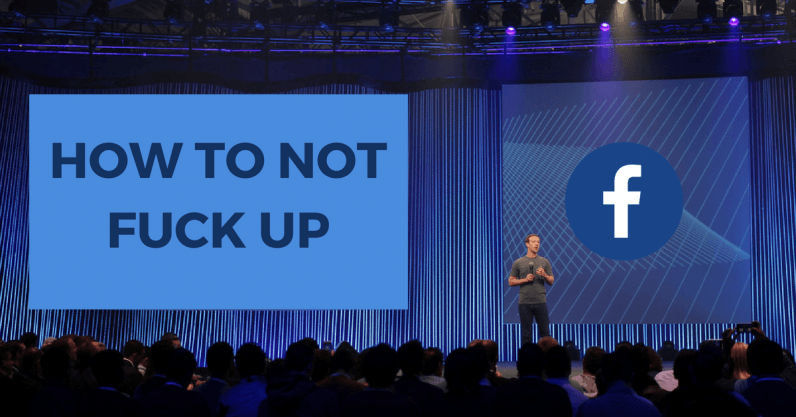When Mark Zuckerberg’s annual challenge was learning Mandarin, it was still fun and games. Now that his 2018 goal is simply “fixing Facebook,” not so much.
It’s fair to say 2018 has been a horrible year for the social network. With its infiltration by Russian operatives, the Cambridge Analytica scandal, concerns about users’ psychological wellbeing, in addition to what could be the biggest one-day drop of all time with Facebook losing $123 billion in value just last week, it’s no wonder the CEO has been nicknamed “Suckerberg” on international TV.
As good ol’ Suckerberg visits governments and newsrooms around the world on his ongoing apology tour, it’s clear: a company that’s been aiming to help users overcome their perception problems is, itself, in the middle of a brand crisis of its own.
But let’s park the schadenfreude for a moment. While Facebook weathers their PR storm, these troubles could engulf any business – maybe even yours.
When you are busy growing and being innovative, it’s easy to quickly lose that crucial connection with your customers. So what can be done to avoid getting caught up in something similar?
Introducing Brand Dissonance
Crisis happens when your organization’s internal perception of itself does not match up with how outsiders view you.
After setting up and gaining traction in your company, if your day-to-day involves fire-fighting and combining strategic initiatives, it can be easy to overlook the unraveling.
Right now, it’s clear that Facebook’s historic perception has fallen out of sync with its own version of reality (on multiple levels). Brands are typically introspective.
Although it sounds a bit delusional, drinking your own Kool-Aid, and encouraging your staff to do so, is the surest way to create positive growth.
So, how would you know or recognize when your own brand is becoming ‘dissonant’? You need to look for the signals. There might be an increase in customer service calls, a decrease in sales, or customer sentiment slipping away.
Every company needs to systematize accepting the idea that, especially when they take their eye off the ball, they are fallible.
Own Your Sh*t
Two years ago, Mark Zuckerberg…
Read the full article here.










